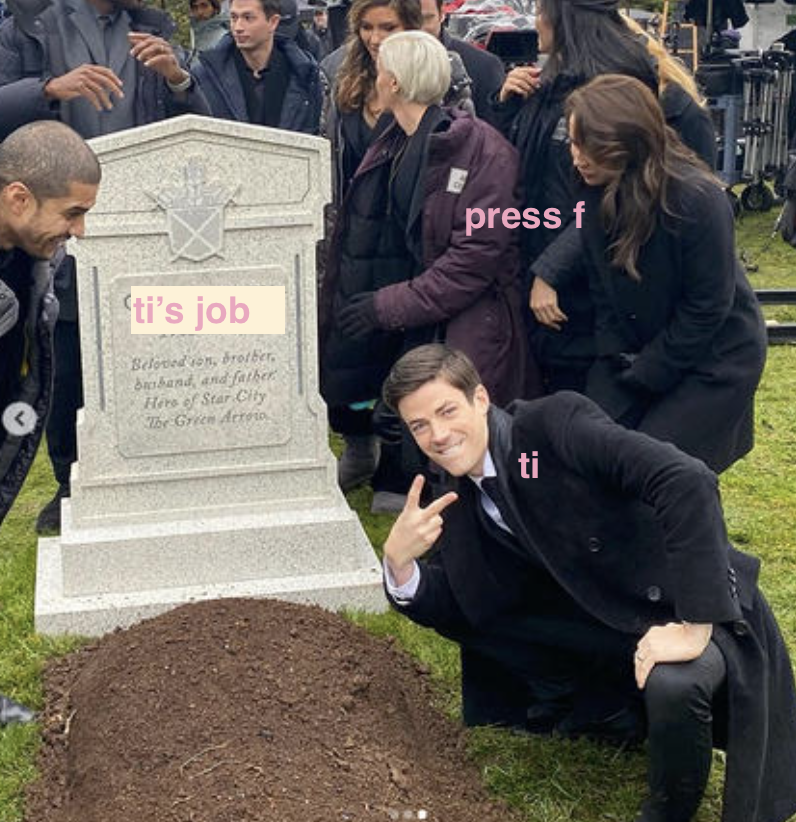Context switching results in productivity loss, this is a known problem. Going to Google Scholar and typing "context switch productivity loss" will get you a ton of papers on that, you also have personal experience about it. I'm here to tell you that the ability to context switch can be acquired through practice.
I'm very good at context switching. At Heroku I ran 7-9 projects in parallel at any given time (yes it burned me out, do not do that) and I was able to maintain productivity jumping between contexts, ship good stuff on time and give good estimates. Frankly it's because I practiced it, and there are two parts to this:
1 - My life experiences
2 - Actual practices that I've found to be useful
1 cannot be reproduced but 2 certainly would be useful to anyone looking to get better at context switching. Feel free to jump directly to 2, just search for "Here's What You Do To Get Better at Context Switching"
Now allow me the luxury of talking about 1, I'm going to get very personal:
Being a Primary and Solo Caretaker Made Me Good at Context Switching
Stage 1 of Ti's Development: Working While Caretaking
Here's the thing, in a single parent household, you are essentially always on-call. That meant I had two jobs, one as a software engineer, one as mother and head of household -- project runner of education, picker-upper of child, make the food appear and make the garbage go away, make the clothes clean and make the bills paid, coordinate the other parent, coordinate school activities, coordinate child's friends, coordinate healthcare, plan birthday parties, plan camps, plan lessons, plan next steps.
I only have 24 hours.
I wasn't good at context switching at the very beginning. I'm autistic, I have ADHD, I was your typical youth who had a hard time moving from one task to the next, did the hyper focus thing, did the can't move my attention away thing.
Life trained me.
It was the autumn of 2013, my mom had just passed away in Vancouver that summer. I'd just flown back from Vancouver to Paris after taking care of her after affairs. The three of us, me, my then-husband, and my 1-year-old, lived in a studio apartment in the 17th arrondissement, blocks away from where Liam Neeson questioned sex workers for clues in Taken(2008) (https://movie-locations.com/movies/t/Taken-2008.php). I was raw from grief, a new mom, barely out of university, and I needed to provide. All I had was flexible time and my language skills in fluent Chinese, English, and barely adequate French. The apartment was beautifully decorated when we moved in, later we found out it was infested with cockroaches and had massive mold issues.
I picked up a lot of work doing translations and copy writing for Chinese and European companies wanting to break into different markets, and of course the occasional on-site interpretation for business meetings. My strength was my understanding of different business cultures and my language skills. My weakness was the fact that I had a 1-year-old who needed my attention consistently for healthy development.
So I'd developed a routine of context switching between work and parenting. I don't think I'm the only one who does this, during the heights of COVID wfh a lot of parents had to jump between "attend to child" and "attend to work". The human brain is amazing, so the longer I did this, the better I got at it. At first it was tricky to get up and hang out with baby for fifteen minutes, then get back and furiously type for thirty -- it would take me some amount of time to recall my thread of thought and get back to speed, but that time grew shorter each time I had to do it.
I gained those skills, I simply had to.
Stage 2 of Ti's Development: Doing Too Many Things at Once
Moving forward to 2 years later -- by this point I'd moved back to Vancouver with The Child, freshly divorced, and trying to make two startups happen WHILE working still as a translator and interpreter in community healthcare and legal settings -- because that's what you do when you were in your twenties and thought you knew how companies worked from working with so many, didn't really know much better, and had no one to tell you otherwise.
The Child was now away at daycare for most of the day, and I had plenty of focus time, but I still needed to context switch between all the things I was handling, including some volunteer translation stuff on the side. Frankly, I think I just needed to keep myself busy because grieving for a parent and a marriage at the same time was simply too much.
Stage 3 of Ti's Development: A Regression
If it's a skill that you can gain, then it's a skill you can lose by not practicing. Fast forward to 2017 -- I did a bootcamp because, well who's surprised that Ti's two startups didn't work out? I learned a lot of things about what not to do, those were valuable lessons, and I was eager to apply them but with a different set of skills.
Turns out I was pretty good at coding. I graduated from the Lighthouse Labs, top of the cohort with several references, and ended up joining a project headed by the bootcamp's head instructor. Side note Lighthouse Labs really did have a great curriculum, it was so practical -- I walked out knowing Ruby and JavaScript, able to build a full-stack app and deploy it with simple Cloud integrations like Heroku and AWS S3 (whoo boy did baby dev ti ever consider "one day I would be working at Heroku" not at all, I was entirely mesmerized by the new world I discovered), knowing how to pick between relational and non-relational databases, drawing an ERD -- all good pragmatic stuff. Really built me well.
Anyways -- by this point The Child was in kindergarten, and I had most of the work day to myself. In this project formed with all bootcamp graduates, I was the most senior guy -- it really got to my head. For the first time in my professional life I enjoyed long hours of uninterrupted focus time, and it was magnificent. I think I became the brilliant asshole, and I got some good feedback on that. When people interrupted me to ask for help with setting up their dev environment, or to integrate with an API I wrote, I got cranky and it showed. I bought into the whole "don't make me context switch or I'll lose my productivity", and I'd forgotten -- context switching was a muscle I'd trained and let go. I'd regressed in my skills, and when I got the feedback, I deeply introspected.
I went back to the drawing board.
Stage 4 of Ti's Development: Undependable Dependencies
So, here's the thing, just because a baby is now a child and then a preteen and then a teen, doesn't mean they don't require constant attention. Good parenting means you have to be there, pick-ups, drop-offs, school emails, healthcare appointments, afterschool activities, birthday parties -- all of this, you need to juggle them alongside your work obligations. Between that very first project and me finally breaking into Big Tech by getting recruited to Hashicorp, there was a lot of Ti flexing that muscle of context switching.
I had a live-in partner, we dated for two years, and lived together for three -- we actually moved in together right around the time when I did the bootcamp. He had been a great help with school pick-up and drop-offs, I was very grateful for that. But once we parted, I had to make alternative arrangements -- and these were not always dependable. It was easier when I was at Hashicorp, that was during the COVID lockdown, but once The Child was back to school and I was at Heroku, things got kind of intense for me.
The job as tech lead of the Production Engineering(then Tools) Operation Experiences team was handed to me, it had felt like. Two years later after massive success in that role I'd asked the hiring manager, whom I'd had conflicts with but then resolved but then conflicted but then resolved (because ultimately he is a very good dude and so am I, I mean how could I ever not respect and admire someone who spent a ton of time helping me change my outward facing name from my government ID name to my preferred name?? Without even knowing whether I would succeed yet? That's allyship.), did he hire me because nobody else wanted the job? He reassured me no, there were other candidates and you were the best and frankly it was hard for me to believe it, call it humility, I don't know.
Heroku Went Through Things during my stay there, the Big Security Incident that traumatized everyone? I was the first responder on scene, along with Good Dude Hiring Manager. Boy did a lot of work come out of that, along with the previous threads of work, suddenly I was running 7-9 projects at any given time -- reporting up, down, peripherally, cross team, cross org, upwards backwards circle spiral zoom in zoom out. I was still coding too, and still parenting. Interfacing with 20 something teams within Heroku and across Salesforce security, compliance, and SR orgs, How did I do it?
The undependable dependencies.
I really couldn't count on the people in my life that was helping with Child's daily pick-up, and I couldn't count on my neurodivergent gifted child to go through a school day without some sort of action I would need to take (Child, if you are reading this -- it's ABSOLUTELY not your fault, that's what neurodivergent gifted kids do, you are not a burden!!! I love doing this for you.). So by default, I worked as if every minute I would have to get up and leave my seat and do something else completely different, then come back.
This manifested in an extremely efficient and modular work style, and I learned to do things like "leave incubation time for walking to pick child up from school, think on this RFC while you walk over, come back home reserve time to write it, code 30 minutes before bed because that's the only no interrupt time". I did a lot of work on my phone, when I could.
I did not take any focus time for granted. I was not gifted that luxury. My kid needed me, my team needed me, I needed to code, review, mentor, write, present, consult, advocate, and I needed time for me so I can shitpost and keep the sad overworked Ti placated. Working in a company with a remote-first culture helped, everyone in distributed timezones, in fact my entire immediate team was in Argentina and I was the only Canadian. This style of dive-in dive-out flexible schedule work really helped with keeping stuff running.
Eventually this amount of overwork became unsustainable and I collapsed but I remain good at context switching, even throughout my medical leave and career break. It's wild how much life throws at you as a middle aged adult, the tracks of work I need to handle between my own career and household stuff also float between 7-9.
Ok, hope you liked reading about my life experiences, I have good stories, that was the top level.
Here's What You Do To Get Better at Context Switching
1 - Structured Project Organization Paired With Bread Crumbs
Context switching is awful because we lose track of thought, so having structured organization that is easy and concise to read helps with that. I have a project doc for every project I run, I take it from company to company and it has worked out well: https://gist.github.com/nombiezinja/ecc26a4923c99d283eb900b40ab43139
There are a lot of writings out there by actual project managers with more expertise than me, so I won't elaborate further. I'm just here as an engineer telling other engineers: listen this stuff is useful for context switching, so you should do it even if it's really annoying and all you want to do is code, I get it I'm that way too.
To supplement the formal documentation you need breadcrumbs: these are more personal. Keep a personal work log with context and thought dumps of what you are doing, but make sure to keep sensitive details out of this log, so that if it is compromised it would not compromise your system's integrity and your personal integrity. This log is meant for you to pick back up where you started. So the format of this could be: before you jump into a meeting that you just got pulled into, write down the last 30 minutes of work that you just did, dump all the questions in your head into a file. This will MASSIVELY reduce the amount of time it takes for you to dive back into focus time after being in a different context. You can clean this up later, see 3
2 - Avoid Wastage in Emotional Energy
Our energy is a bucket, and it should be spent with intention. I do not like to waste, so one thing that has benefited me is to not waste any emotional energy on feeling annoyed or frustrated about being interrupted. I have come to accept it as the norm rather than the abnormal -- this helps me with just taking and rolling with it. If you can shift your cognitive perspective to accepting "context switching is a must in my life/job" and go along with it, then you spend a lot less time and mental energy being angry about it -- you can devote that to solving the problems you need to solve.
3 - Daily and Weekly Rituals
If you context switch a lot you could risk losing sight of the bigger picture, and you could lose sight of priorities. You could also risk losing alignment. So here's what I do to avoid that:
Daily end-of-day ritual of work log review
What did I do today, how much was interrupted, what does that mean for our priorities
What do I need to bring up with my bosses/team/collaborators after parsing the above
Have I scrubbed sensitive info from this log (see 1)
What do I plan to do tomorrow based on the data from today
Daily start-of-day ritual of work log review
Consolidate data from people's updates from different timezones, adjust priorities accordingly
Intake interrupts, re-prioritize accordingly
Communicate with bosses/team/collaborators for these decisions
Look at schedule of the day and assign types of work to types of time slots throughout the day(e.g. "well looks like i have 2 hours between meetings, I will leave that for this code I have to write. i have to go fetch this data for ___ that would be 15 minutes, i can do that right before i leave to pick up child.)
Weekly ritual of weekly work log review
Similar to the above, but with week as a unit
Quarterly
Seriously I feel like I'm repeating myself, but...
Annually
Yup you guessed it lol
Conclusion
Context switching is a skill, and a muscle you can practice. Yes it causes you to lose productivity, but if we spent less time complaining and being angry about it and more time getting good at it, we can become really good at it.
Of course, there's related topics like "how do we minimize context switch" "what kind of context switch is valuable vs not valuable" "meeting hygiene" -- that would be for another discussion.




